On the morning of March 9th, a kickoff meeting, for “Integration and Demonstration of the Utilization and Scale of Solid Waste in Southwestern Special Industrial Clusters of Chemical Engineering and Metallurgy,” the key special project of “Utilization of Solid Waste” of the National Key Research and Development Plan, organized and also undertaken by GZU, was held at Huaxi Yingbin Hotel. The session was also intended for discussions and debates relating to the project’s implementation blueprint.
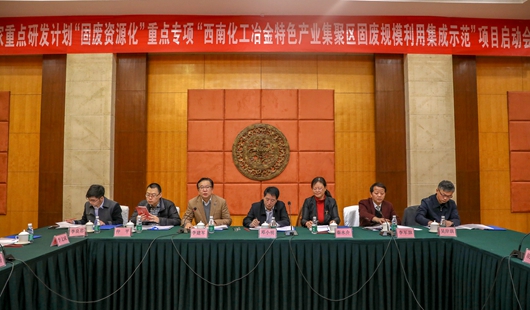
Present at the meeting were: Deng Xiaoming, Deputy Director of the Department of Social Development and Science and Technology of the Ministry of Science and Technology; Sun Chuanyao, Academician from Beijing General Research Institute of Mining and Metallurgy; Qin Shujie, Deputy Director of Guizhou Science and Technology Department; Zhong Ping, Director of China 21st Century Agenda Management Center; Li Liangzhong, Director of the Resource and Environment Division of the Ministry of Science and Technology; Li Jianjun, Party Secretary of GZU; and Zhang Qin, Vice President. In addition to project leaders and project team members, the meeting also included experts from sectors across the country, including Department of Guizhou Science and Technology Department, Institute of Process Engineering of the Chinese Academy of Sciences, and Wuhan University of Science and Technology. Li Junqi, Vice President of GZU, presided over the meeting.
Li Jianjun delivered a speech. He remarked that the project marks a milestone for scientific research at GZU. Acting as the key organizer, GZU will effectively facilitate relationships between project participants. It will provide as much support as needed for the project in terms of human and material resources, and ensure that the project research will be completed on time and all evaluation indicators will meet the general criteria.
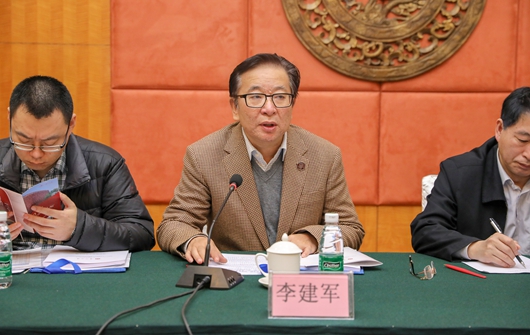
In her remarks, Qin Shuijie noted that the organizer should fully take charge of the work. According to Ms. Qin, project tasks should be arranged step by step and accomplished in a timely manner. Research leaders and relevant sectors should look at the big picture and follow the procedures of the project arranged by the organizer. In addition, she stressed that everybody involved should strictly abide by regulations on science and technology funding under the National Science and Technology Plans.
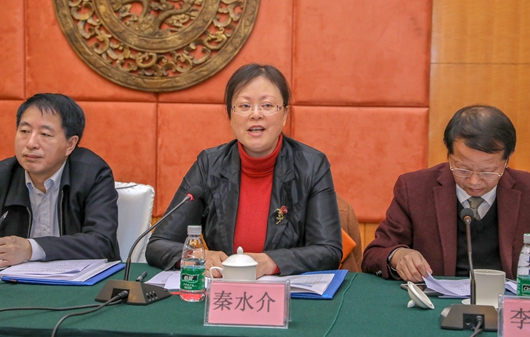
Deng Xiaoming made three suggestions. First, everyone should have a stronger sense of mission, which will help solve relevant industrial issues and fix problems of the project. Second, everyone must have a thorough understanding of the policies and procedures, avoid lip service, and act upon ideas and suggestions. Third, everyone should work towards better outcomes so as to make the project sustainable. Finally, he hopes that the experts present will make breakthroughs by planning ahead and proactively thinking about the role they play in solving technical difficulties.
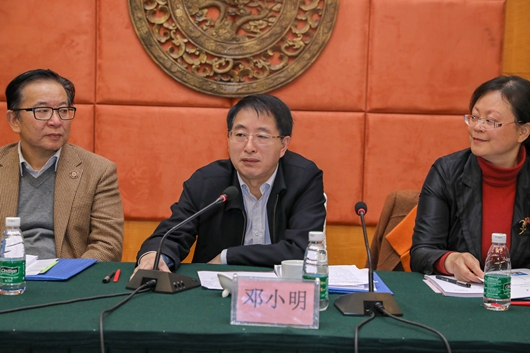
After reading the expert name list, Li Junqi announced the official launch of the project.
Following the kickoff ceremony, the experts continued to discuss project-related matters such as project implementation plans and research proposals. Following some debate and discussion, the panel of experts unanimously agreed to adopt the implementation blueprint for the project as well as the research proposals.
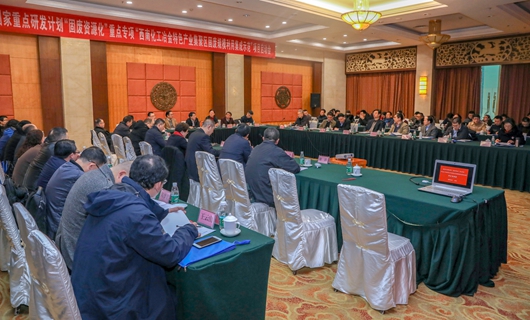
This project, facilitated by GZU, engages nine sectors including Guizhou Academy of Sciences, Wengfu (Group) Co., Ltd., GuizhouKailin Holdings (Group) Co., Ltd., Southwest Energy Mining Group Co., Ltd., Institute of Process Engineering of Chinese Academy of Sciences, Institute of Geochemistry of Chinese Academy of Sciences, Institute of Guizhou Materials Industry and Technology Research, Southwest University of Science and Technology, and Kingenta Norsterra Chemical Co., Ltd. It aims to reach the following outcomes: 1) To present demonstration and conduct research on the reduction of source of phosphate gypsum, red mud and electrolytic manganese slag in Guizhou, including the utilization and integration of solid waste resources; 2) Create four or five sets of solid waste recycling technology and find a serious of comprehensive solutions upon the completion of the project; 3) Construct five or six demonstration projects of the comprehensive industrial utilization of solid waste. It is expected that the treatment capacity of solid waste will amount to over 2 million tons per year. These technological advancements are expected to ensure the transition, upgrading and sustainable development of the chemical and metallurgical industry in southwest China.
Text: Li Baifeng (GZU News Center)
Photography: Luo Ning (intern, GZU News Center)
Chief Editor: Li Hui
Senior Editor: Tang Juan
Translator: Li Xiaorong
Proofreading: Zoe Novak, Zhou Jie